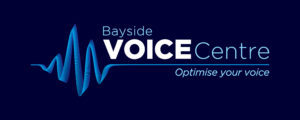Is Your Voice Essential For Your Job?
In many occupations, the voice is an invaluable tool, but rarely do organisations provide vocal training. Initially, teachers, sports instructors, performers, and call centre operators come to mind as the obvious professional voice users. However, jobs such as those in sales, real estate, parenting, clergy, management and many more also require large amounts of voice use. Protecting your ‘tool-of-the-trade’ is important for the individual, but critical for an organisation’s Workplace Health and Wellness Strategy for operational efficiency.
In business and educational institutions, the health and wellbeing of staff are of paramount importance. Vocal health is often an overlooked aspect of occupational health and safety. This article discusses the importance of vocal training for OH&S compliance and outlines the measures that a local primary school has taken to mitigate the risks associated with voice disorders.
Let’s take a look at how workplace voice training can make you and your workplace safer.

The Risks For Your Employees
Research indicates teachers, call centre operators, instructors and other voice professionals face a voice disorder risk three times higher than the general population.
The Impacts On Your Workplace
Up to 20% of teachers miss at least one day of work each year due to voice-related issues. This leads to potential financial losses and operational inefficiencies for the workplace due to absenteeism. If left unaddressed, voice-related issues can develop into more persistent voice disorders that become more problematic for individual employees and impact on their ability to perform their role in the workplace.
Bayside Voice Centre uses researched, diagnostic tools to gather information about the vocal health of your staff. This provides the basis for an Occupational Health & Wellness risk assessment to guide a strategic response to current workplace needs. This screening tool and subsequent training has been delivered successfully in a local primary school and for instructors in a Pilates studio to ensure OH&S compliance.

Local Primary School Case Study
Screening for voice difficulties
With a local primary school in Brisbane, we used the Screening Index for Voice Disorder (Ghiradi et al, 2013) with 79% of the teaching staff. The results revealed that 18% (6/34) of the staff members surveyed had symptoms that indicated an increased likelihood of a voice disorder. This was measured by identifying teachers who were considered to be at a ‘moderate risk’ of developing a voice disorder. The survey identified those at a ‘moderate risk’ based on the following conditions:
- the likelihood of a voice disorder being ‘possible’ and
- the severity of a voice disorder being considered to be ‘moderate’ (i.e. the consequences of the disorder requiring medical or therapeutic attention).
When we consider the research that suggests up to 20% of teachers are likely to be absent for at least 1 day per year due to voice-related issues, this would be approximately 6.8 staff members at the school in question, which reflects the number of teachers who reported voice symptoms on their screener.
Recommended Actions
- Engineering Solutions: Amplification systems installed in classrooms to ensure clear audibility and to enable students to hear effectively. These systems helped to reduce the need for staff to strain their voices in order to be heard.
- Personal Protective Equipment: Personal amplification devices were provided for use in crowded environments and in large spaces where background noise was a problem (eg. over music, assemblies, playgrounds, bus duties, and swimming carnivals). The personal amplification devices further reduced the risk of vocal strain in noisy environments to ensure voice protection.
- General Training: Teachers received a one-hour Healthy Voice Habits Training session to increase awareness of the risks, preventative practices, and the early symptoms of voice disorders. Opportunities for regular induction training are scheduled for new employees and older employees are able to attend to engage in refresher courses if needed.
- Annual Monitoring: Consistent voice quality screening can pre-empt potential issues.
- Specialised Group Training: Staff members who were identified as being at a ‘moderate risk’ of developing a voice disorder (i.e. after reporting definite voice difficulties) were given a full day of specialised support and individual assessments.
- Individual Voice Therapy: Of great benefit for those staff with unique voice-related concerns. Depending on the workplace, assessment and diagnosis, staff may be eligible for WorkCover, and access to a personal amplification device.
Cost-Benefit Analysis
The financial impact of absenteeism is significant for many workplaces. For the local school case study the potential cost for the school to replace the six teachers, for just one day per year, would have been around $2720 annually.
The cost of the preventive measures significantly undercuts the potential losses from hiring replacements. Here’s a quick breakdown of the costs for the local school’s scenario which shows a 21% saving to implement screening, general and specialised training.
- Staff Screening: $5 per person ($170.00)
- Healthy Voice Habits Training session: 1hr all-staff session ($320.00)
- Specialised Group Training: $250 per person – full day of training for six at-risk employees ($1500.00)
- Individual Therapy: Covered either personally (health fund rebates available) or through Workcover.
What Is Covered In Workplace Vocal Training?
The three stages of workplace vocal training provided by Bayside Voice Centre, are aimed at ensuring workplaces are giving due consideration to promoting health and wellbeing for all employees in the area of their vocal hygiene and health. These three stages include:
- Screening
- General Training Session
- Specialised Group Training.

As a Certified Practising Speech Pathologist, Jenny has a special interest in vocal health and works with people as a vocal coach and therapist to develop their natural voice, and optimise their voice to connect with their audience. The vocal training that will be most applicable to you as an individual and for your workplace, will depend on the type of work you do and may involve vocal warm-ups and exercises that you can use everyday or before special presentations.
Jenny provides training for your workplace that is tailored and relevant to your industry and the specific roles of your employees.
The Benefits of Providing Vocal Training in the Workplace
There are numerous benefits to be gained from regular vocal training in the workplace, both for employees and employers. Here are just a few benefits you can enjoy:
- an understanding of the anatomy of the voice and how it is produced, including tips for effective voice projection and for conscious control over your intonation, emphasis, volume, and fluency
- information about good vocal techniques to help protect the voice, reduce the impact of nerves, enable you to connect with your audience, and increase stamina to safely use your voice for longer
- an awareness of signs and symptoms of voice-related issues
- workplace screening to identify ‘at risk’ staff and implement preventative measures to reduce the development of voice disorders
- an ability to respond to risk with a data informed strategy.
As a Certified Practising Speech Pathologist, Jenny will also be able to give you other tips and tricks to improve the health and quality of your voice and to help you engage more effectively with your audience. In addition to vocal health training, Jenny will also discuss some of the features of voice such as rate, fluency, clarity, volume, intonation, voice quality, stress and prosody which all enhance effective communication and engagement with your audience.
Who Is Professional Vocal Training For?
- Tour guides
- Reporters
- Gym instructors
- Interpreters
- Radio announcers
- Receptionists
- Referees
- Public speakers
- Salespeople
- Trainers and coaches
- Announcers
- Call centre workers
- Lawyers
- Advertising sales representatives

These are just a few of the jobs that are considered to be vocally demanding. So, how much do you use your voice in your job, and could your workplace benefit from vocal training? If your business or organisation could provide a healthier and safer workplace by providing vocal training, why not email Jenny today to find out more.
The Takeaway
Do you want to ensure that you are integrating health, safety and wellbeing into your workplace? Investing in workplace voice training with Bayside Voice Centre will help you in meeting OH&S compliance requirements. At the same time you will be providing essential voice training to help your employees have greater control over their voice so they can grab and hold attention during meetings or when talking to students, clients or co-workers?
Vocal health is a critical aspect of employee safety and wellbeing, and proactive measures can significantly reduce the risks associated with preventable voice disorders. Bayside Voice Centre can provide the necessary voice training and support,for your workplace. Contact Jenny on 0439 710 366 to discuss workplace voice training today.



